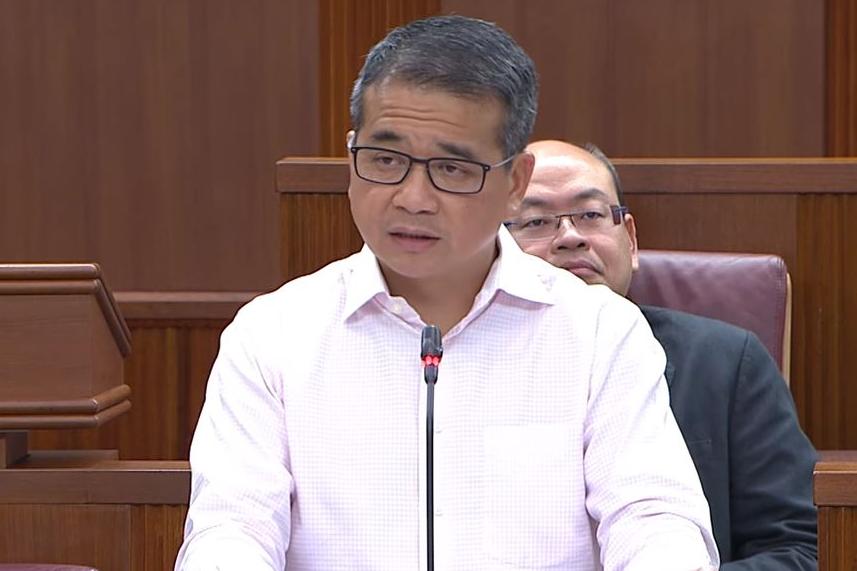Parliament: Slew of measures to help caregivers who need financial aid and respite
Sign up now: Get ST's newsletters delivered to your inbox

Senior Minister of State for Health Edwin Tong said the Health Ministry will set up more caregiver support networks and make it easier for people to access the services they need.
PHOTO: GOV.SG
Follow topic:
SINGAPORE - An extensive range of measures will be rolled out in the next two years to help Singaporeans who care for the aged, the infirm and people with disabilities.
These include a new grant to offset care costs, more options for respite care, and the loosening of restrictions on Medisave funds so that people can help pay for their siblings' care.
The Health Ministry will also set up more caregiver support networks and make it easier for people to access the services they need, said Senior Minister of State for Health Edwin Tong in Parliament on Wednesday (Feb 13).
The changes are part of a new Caregiver Support Action Plan, which comes four months after the ministry said it is undertaking a review of the caregiver support system.
Earlier on Wednesday, more than 20 MPs spoke on the importance of making sure Singaporeans age well and ensuring their caregivers get adequate support. Many shared anecdotes of personal encounters with burnt-out caregivers who had sought their help.
At least six new measures to help ease the burden on caregivers will be launched under the new action plan, including a new means-tested Home Caregiving Grant that will be introduced by the end of this year.
The $200 monthly grant will replace the existing $120 Foreign Domestic Worker Grant, and will give caregivers greater flexibility in how funds are used. Anyone with permanent moderate disabilities will be eligible, regardless of their age.
By the end of this year, people can use their Medisave funds to pay for the healthcare expenses of their siblings.
And the Agency for Integrated Care, which coordinates eldercare schemes, will launch three pilot schemes to expand respite care options.
These include a night service for caregivers of dementia patients and a home-based service for cancer patients on palliative care. It will also try out a pre-enrolment system at certain senior care centres and nursing homes so that respite services can be activated at short notice, if necessary.
The ministry will also expand caregiver support networks, improve eldercare training, and set up more community touchpoints where caregivers can access information and referral services. More details will be released in the coming months.
By 2030, one in four Singapore residents will be aged 65 and older, and informal caregiving arrangements will grow as the population ages.
Given Singapore's demographic profile, Mr Tong said his speech focused mainly on help for those caring for the elderly "as a start". But he acknowledged there is a "broad range of caregivers who operate in a variety of different circumstances and a very broad landscape".
"Their needs are diverse, as with their own particular family or caregiving circumstances, so over time we will need to look carefully at what these needs are, and whether further assistance might be needed."
Minister of State for Social and Family Development Sam Tan, in his speech, assured caregivers of special needs students who are worried about what will happen when their children complete their studies in special needs schools.
"Parents know that they will not always be able to take care of their children, and they hope that their children will be able to find and hold on to good jobs, and live independently despite their special needs," he said.
Mr Tan said his ministry is examining the issues and will elaborate on its plans during the upcoming parliamentary debate on his ministry's budget.
It will also disclose details of its plans to provide better social assistance in cases of complex needs.

